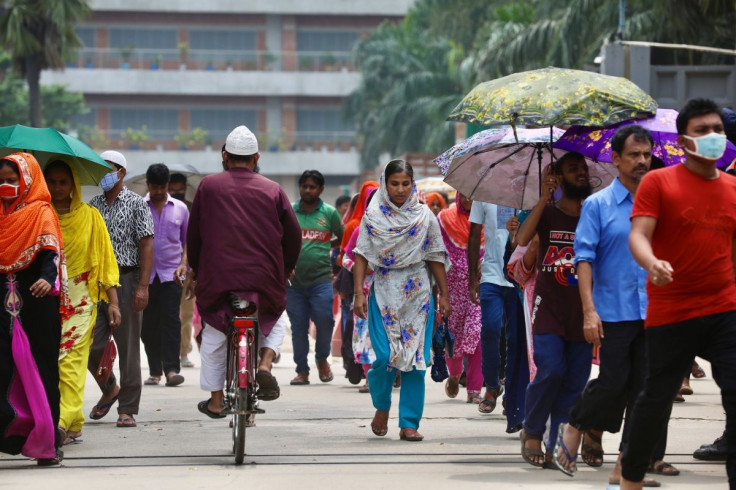IMF Says It Is Ready To Support Bangladesh After Loan Request

The International Monetary Fund (IMF) said on Wednesday it would discuss with Bangladesh its loan request after the country became the third in South Asia to seek such support after Pakistan and Sri Lanka.
Bangladesh's $416 billion economy has been one of the fastest-growing in the world for years, but rising energy and food prices because of the Russia-Ukraine war have inflated its import bill and the current account deficit.
The IMF said Bangladesh was interested in its new Resilience and Sustainability Facility aimed at helping countries face climate-change challenges and had also requested negotiations for an "accompanying IMF programme".
"The IMF stands ready to support Bangladesh, and the staff will engage with the authorities on program design as per the established policies and procedures of the Fund," an IMF spokesperson said. "The amount of support will be part of the program design discussions."
Earlier in the day, Bangladesh's finance minister told reporters the government would take an IMF loan only if conditions are favourable and said the country's macroeconomic conditions were fine.
"If the IMF conditions are in favour of the country and compatible with our development policy, we'll go for it, otherwise not," Minister A.H.M. Mustafa Kamal said. "Seeking a loan from the IMF does not mean Bangladesh's economy is in bad shape."
The IMF's resilience and sustainability trust caps funds at 150% of a country's quota or, in Bangladesh's case, a maximum of $1 billion.
Bangladesh's Daily Star newspaper reported on Tuesday that overall, the country wanted $4.5 billion from the IMF, including for budgetary and balance-of-payment support.
The country's economic mainstay is its export-oriented garments industry, which is bracing for a slowdown as key customers like Walmart are saddled with backlog as inflation forces people to prioritise essentials.
After garments, remittances are the second highest source of foreign currency for Bangladesh, a country of nearly 170 million people.
Its foreign exchange reserves fell to $39.67 billion as of July 20 - sufficient for just over five months worth of imports - from $45.5 billion a year earlier.
Its July to May current account deficit was $17.2 billion, compared with a deficit of $2.78 billion in the year-earlier period, as its trade deficit widened and remittances fell.
© Copyright Thomson Reuters 2024. All rights reserved.




















